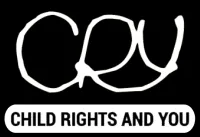
Evaluation Study RTE Act, 2009 and JJ Act, Maharashtra (2016)
India’s Constitution underpins laws and welfare for social issues, yet challenges persist, including poverty, hunger, gender bias, and illiteracy. The 2009 Right to Education Act strives for free education, but implementation gaps affect vulnerable groups. The Integrated Child Protection Scheme aims to safeguard children, with a Maharashtra-focused study assessing RTE Act implementation in rural schools and scrutinizing ICPS through government bodies, highlighting the need for impactful execution. The study aims to assess implementation of RTE Act and to study the impact of school closure on children. The study delves into six districts of Maharashtra, assessing RTE Act implementation and studying the impact of government school closures on children. Through the questionnaires, data is collected from 127 primary and secondary schools, encompassing various committees and bodies. The findings uncover significant challenges in education and child protection, including a lack of secondary schools contributing to student dropouts, insufficient classrooms affecting educational quality, and health risks associated with inadequate water facilities. Teacher training awareness gaps and issues within child protection committees under ICPS, such as funding shortages and inactivity, further highlight systemic shortcomings impacting children’s well-being. Recommendations underscore the need for maintaining open schools, improving infrastructure adherence under RTE, promptly filling teacher vacancies, allocating budgets for training, and extending RTE age limits. In child protection, urgent appointments, state-level gap analysis, budget allocation for training, timely fund distribution, and efficient monitoring are proposed. The call for state-level studies, appointments, and evaluations emphasizes the imperative for comprehensive improvements in both education and child protection mechanisms, addressing the systemic challenges revealed by the study.

